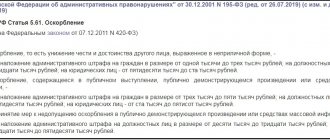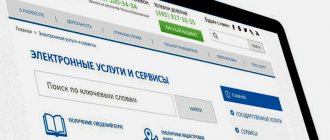What is a student characteristic?
A pedagogical characteristic is a document containing information about the psychological characteristics and abilities of a student. It reveals the child’s personality, all its features, and therefore the characteristics are not always positive. The main purpose of its compilation is an objective reflection of the cognitive and behavioral characteristics of a particular child.
The document is drawn up by a teacher who directly interacts with the student for whom the paper is being drawn up, who knows his personal qualities and individual characteristics well. For example, the class teacher. In order to give a balanced and truthful assessment, the teacher must observe the child’s progress and behavior over a long period of time. Please note that when compiling a description, the teacher must avoid bias, exaggeration and personal interpretations of the facts described. The student's personality must be described objectively.
This document is important, as a rule, when a student moves from primary school to secondary school. In this case, the paper will help secondary school teachers learn about the characteristics of students and find an appropriate approach to each of them. But there are other situations in which a reference for a primary school student may be required. For example, for submission to government agencies, when passing a medical commission or when transferring a student to another educational institution.
In order to understand how to correctly write a character reference for a student, it is important to look at a sample - examples of similar real documents. Let's look at several samples of both positive and negative characteristics. All of them were compiled by professional educational psychologists from the educational portal pedsovet su.
Why do you need a reference from school?
The requirement to provide such a document has become common in recent years for various structures and institutions. This is due to the fact that it saves organizations from wasting time and allows them to quickly find out as much personal information about the child as possible, which during a conversation with the student himself and his environment will not be so objective, accurate and truthful. Plus, the characteristic makes it possible to draw a psychological portrait of a person in absentia, even before personal acquaintance.
Positive characteristic
Let's look at an example of what a positive reference for a 1st grade student from the class teacher looks like:
Example
Characteristic
1st grade student
Abramov Maxim Gennadievich
Abramov Maxim Gennadievich, born in 2000, lives at Novospasskaya street, house 14. Did not attend preschool institutions. Before entering 1st grade, he was raised at home by his mother and grandmother. Since September 1, 2008, he has been enrolled in the State Budget Educational Institution Secondary School No. 2048. He attends the educational institution regularly. Absence from classes occurs only for a valid reason, documented by a doctor or family members. Maxim is the winner of municipal swimming competitions and the All-Russian Olympics in the Russian language. The family takes an active part in the child's life. Relatives help him with his studies and support the boy’s creative and sporting endeavors. They are willing to make contact with teachers and school administration and cooperate. The child's appearance is well-groomed and neat.
In mathematics, Maxim knows the rules of addition and subtraction and can count in his head. The student has a well-developed memory. He quickly remembers the rules and masters new skills. During the second quarter of the school year, I learned to draw segments, convert centimeters to millimeters, and learned the addition table with transition through place value. He keeps his notebooks neatly. Able to do complex calculations on paper and perform simple calculations orally. Completing tests is not a serious problem. Submits work for inspection among the first. Based on the test results, he receives high marks.
Reading technique – 70 words per minute. When reading, he does not make mistakes and does not miss letters. Speech is clear and intelligible. The vocabulary is large. Able to express his thoughts and give explanations. Shows interest in reading. Prefers fairy tales and poems. He is happy to answer questions about the text he has read and discuss it.
Behavior is good. Doesn't argue with teachers and doesn't run around the classroom. Before giving an answer, he holds out his hand. He doesn't shout from his seat. In relations with classmates he is not shy: he is relaxed and friendly. Classmates trust Maxim and treat him with respect. In controversial situations they turn to him for help. There were no conflicts between them.
During his studies, Maxim showed himself to be a responsible student, diligently completing all the tasks of his teachers. Shows interest and activity in lessons. Strives for independence. Shows leadership traits. Makes a lot of effort to achieve the goal. Strives for high results in sports and studies.
Capable of quickly switching between activities. The development of fine motor skills, attention, memory, and intelligence are above average. The ability to analyze information, self-discipline and stability of attention are normal.
Director's signature
Signature of the class teacher
General points
In most cases, the preparation of such documents is carried out by the class teacher as the person who knows the students best.
If we talk about graduates, they need characteristics to submit to educational institutions of different levels of accreditation. The teacher has to compile many similar documents in a short time. As a result, the text may turn out to be formulaic, not fully revealing the child’s personality.
Sample characteristics will help you avoid this situation. Detailed examples of documents for graduates of different levels of development will allow the teacher to quickly cope with the task.
When a reference is sent to another institution, it is assigned a registration number. Information about it is entered into the “Journal of incoming and outgoing documentation”. The data volume is approximately on an A4 sheet.
Sample positive testimonial for a girl
Characteristic
for 1st grade student of school No. 315 Alyokhina Maria Viktorovna, born 20.08.07.
During her studies at GBOU Secondary School No. 315, Alekhina Maria Viktorovna showed herself to be a diligent and responsible student. She actively participates in the social life of the class and shows herself during extracurricular clubs and events.
This is also important to know:
Characteristics of an athlete
Free legal consultation We will answer your question in 5 minutes!
Ask a Question
In class he behaves diligently and disciplinedly. Actively participates in discussions and demonstrates knowledge acquired during training. Participated in intra-school drawing and reading competitions. Preparing for the Municipal Olympiad in Literature.
Free legal consultation
We will answer your question in 5 minutes!
Ask a Question
Alyokhina Maria Viktorovna strives to maintain good relationships with classmates and teachers. Responsive. He gladly responds to requests for help from teaching staff and school friends.
The character is calm. Demonstrates creativity (drawing) abilities. Strives to improve acquired skills. Participates in cleanup days, festive performances and classroom decorations before various events.
She received a good upbringing in the family. She was instilled with a love of work and respect for elders. Throughout her studies until 2021, she demonstrated excellent academic performance and good behavior.
Director ____(full name) (signature)
Class teacher _____(full name) (signature)
Natalya Ivanova has been studying at the State Budgetary Educational Institution Secondary School No. 18 in Moscow since the first grade. During the year of study, she showed herself to be a responsible and hardworking student with developed intelligence, diligence and good nature. Interested in natural sciences. Outside of school, he practices ballroom dancing and studies French.
Natalia loves to read. He prefers to study encyclopedias, thanks to which he has a broad outlook. Shows interest in acquiring new knowledge. Often asks clarifying questions. Able to maintain attention on current activities for a long time. However, there are also no problems with switching to other tasks.
Learning material is learned quickly and easily. Able to express his thoughts and argue his position. Behaves conscientiously in class. Doesn't miss classes. Takes an active part in the life of the class. Starting from the second quarter, he holds the post of class leader. He approaches the performance of his duties with full responsibility.
Sociable. Loves to be the center of attention. She easily finds a common language with classmates and teachers, which allows her to occupy a leading position in the team. Shows organizational talent. He is the initiator and implementer of intra-class activities.
The girl's parents create a warm and friendly atmosphere within the family. They allow the daughter to realize her leadership potential and demonstrate independence. Contact with representatives of the educational institution is made upon request.
This is also important to know:
Characteristics from the place of work, sample to the police
Director's signature
Signature of the class teacher
An example of a profile for a student with average abilities
Example
Afanasyev Ivan has been studying at State Budget Educational Institution Secondary School No. 914 since the third quarter of first grade. He studied for the first and second quarters at State Budgetary Educational Institution Secondary School No. 815. He was transferred to another educational institution due to the family moving to another place of residence. When mastering the general education curriculum, he demonstrates an average level of cognitive abilities.
He is not active in class. The acquired knowledge can be demonstrated only under the strict supervision of the teacher. There was also no interest in the educational process.
Does homework irregularly. Shows a penchant for drawing, music and the world around him. But mathematics, reading and the Russian language are difficult for him. His vocabulary is small, making it difficult for Ivan to express his thoughts orally. Attention is distracted. Ivan finds it difficult to concentrate on one task for more than 5-7 minutes.
Ivan masters the bulk of the school curriculum. However, he rarely applies knowledge. He is not active in lessons. Completes written tests satisfactorily. At the end of the school year, the student did not have unsatisfactory grades.
He rarely participates in the extracurricular life of the class, each time citing his busy schedule. But if Ivan takes on any obligations, he fulfills them responsibly. After classes he attends a hockey club. Physical development is good.
Uncommunicative. Reluctant to make contact with peers. He communicates mainly with a narrow circle of children from among his classmates and comrades in the sports section. When communicating with children from the class and teachers, he is polite and modest, but laconic and unemotional. Tends to be independent and independent.
Director's signature
Signature of the class teacher
Example
Characteristic
For a student of 1st "B" class
Khabibulin Timur Ignatovich
living at the address: Samara, st. Lenina, 22.
Khabibulin Timur has been studying at school No. 122 in Samara since the first grade. Raised in a single-parent family. Timur has two brothers and a sister.
Attends school regularly. Experiences difficulties in mastering educational material. Has difficulty finding errors in his work and does not strive to correct them. There are difficulties with concentrating: Timur quickly loses interest in one type of activity and switches to another. Doesn't know how to plan a work process.
Reads syllable by syllable and without expression. Sometimes he misses letters and syllables while reading. Experiences difficulties when presenting the material read orally. He writes slowly, making many mistakes. Tries to memorize the rules, but does not always understand how to apply them in practice. When writing test papers, the help of a teacher is often required so that the student can complete the task. He also often makes mistakes when solving problems in mathematics. Confuses quantities. Verbal count within 50.
Shows interest in computer science. Despite the presence of errors, he tries to understand the subject and get a good grade. The student is friendly and sociable. He enjoys engaging in dialogue with both classmates and teachers. Behavior is satisfactory. Can shout out from his seat or start a conversation with his neighbor at his desk right during the lesson. However, he quickly reacts to the teacher’s remark and stops the conversation.
With the organizational and supportive help of the teacher, Timur received satisfactory grades for all quarters. Parents are worried about Timur's academic performance. They are interested in his grades and behavior during classes. They always make contact with the school’s teaching staff, show up when requested, and are interested in types of help to overcome difficulties that arise.
Director (full name) ____ (signature)
Class teacher (full name) _____ (signature)
Rules for conducting psychological and pedagogical examination
There are fairly clear rules for drawing up a student’s characteristics. One of the fundamental requirements for conducting psychological and pedagogical characterization is objectivity . It is equally important to carefully analyze the factors influencing a child’s development as a whole, taking into account the characteristics of the student. The child should be treated as delicately as possible, minimizing any coercion or pressure on him. Only in this case can a psychological and pedagogical characterization of a student or student be as objective and useful as possible.
The student's characteristics are written by the class teacher and signed by the school director. When writing a psychological profile of a child, you may need the help of a school psychologist, testing and diagnostic results.
Sample characteristics for a student with low academic performance
Nikita Danilov is a first-grade student at State Budgetary Educational Institution Secondary School No. 23 in St. Petersburg. During his time at school, he showed no interest in the educational process. He is lazy in class and does not pay attention to the material presented. Does not try to understand the subject and correct mistakes. Doesn't show activity in lessons. Prefers to do other things. Doesn't respond to teacher's comments.
This is also important to know:
Characteristics for a summer camp counselor, sample
There are irregular absences from classes without a good reason. Shows interest in interacting with classmates during class. However, during breaks and after school hours he is gloomy and taciturn. He does not complete his homework on his own; he tries to copy from his peers.
Reading speed is low. Confused about addition and subtraction tables. Mastered mental arithmetic within 20. He does not keep notebooks and diaries neatly. Doesn't always write down material. But he often draws in the margins. The assignments received during the lesson are not completed in full without explanation.
Has the necessary work skills, but does not strive to demonstrate them in the classroom and extracurricular life of the school. Doesn't attend extra classes. He doesn’t go to sports or creative clubs.
Rarely shows positive emotions. Reacts aggressively to constructive criticism. When angry, he may use profanity. Requires attention to yourself and respect for your opinion. At the same time, I am not ready to put up with the opinions of other people.
Parents make contact with representatives of the educational institution by telephone, but do not always come to school at the request of the class teacher due to high work commitments.
Director__(signature)
Class teacher__(signature)
A sample plan might look like this:
- General information. FULL NAME. Date of Birth. Date of admission to this educational institution.
- Family information. Family full/incomplete. Information about relatives living together.
- Physical state. Presence/absence of chronic diseases, deviations in physical development. Conditions of vision and hearing.
- Attitude to learning. Presence/lack of interest in learning, seriousness/frivolity, responsibility/carelessness, hard work/tendency to laziness, strong/weak student.
- Intellectual sphere. Attentive / absent-minded, remembers material well / poorly, imagination is developed / not, inclined to analyze information / not inclined.
- Activity in the classroom. High/low. Continuous/periodic.
- Emotional-volitional sphere. Discipline/lack of discipline, perseverance/excitability, responsibility/irresponsibility, acceptance/rejection of educational measures, high/adequate/low self-esteem.
- Communication sphere. Sociability/unsociability, openness/closedness, presence/absence of leadership qualities, friendliness/conflict.
- Moral and aesthetic qualities. Truthfulness/propensity to lie, presence/absence of empathy, desire to help others, integrity/unprincipledness.
- Hobbies. Presence/absence of hobbies. Information about attended clubs and sections.
Sample characteristics for a difficult teenager to the police
Mironov Andrey Vasilievich is a 9th grade student at GBOU Secondary School No. 1911 in Moscow. Until the 7th grade he studied at State Secondary School No. 13. He was expelled from his previous place of study due to poor academic performance. Andrey appears at lessons irregularly. Due to absenteeism and poor performance, he was retained for the second year in the 8th grade.
Shows no interest in studies. Doesn't do homework. He treats the class teacher's requests with indifference. Doesn't make friends with classmates. Lack of initiative. During group discussions he remains aloof. Does not participate in extracurricular life of the class.
Shows interest in some types of extracurricular activities (sports). Plays football, goes to the gym. Andrey is attentive to his appearance. He is neat, monitors hygiene and cleanliness of clothes. Spends his free time in the company of older teenagers. Was noticed by the class teacher for drinking alcohol and smoking.
Andrey is not known for his honesty. He can easily lie. Often does not finish the job he has started. Lazy.
Since April 12, 2021, he has been registered with the school psychologist. Raised in a single-parent family. The mother communicates with teachers and school administration irregularly. Due to raising two younger children, she cannot pay attention to Andrey and look after him.
Director (full name)__(signature)
Class teacher (full name)__(signature)
Free consultation
8 800 511-39-66Ask a question









